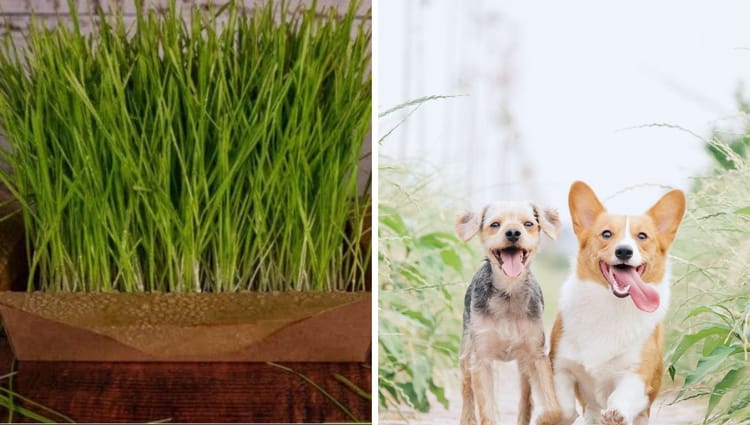Pawsitively Green: Unleashing the Bark-tastic Health Benefits of Broccoli Microgreens for Your Canine Companion!

In the world of pet nutrition, the quest for wholesome and beneficial treats for our furry friends is a constant endeavour. Enter the tiny but mighty world of broccoli microgreens – a nutritional powerhouse that is creating quite a buzz in the canine wellness community. While broccoli itself is a well-known vegetable packed with essential vitamins and minerals, its microgreen form takes canine nutrition to a whole new level.
These miniature greens, harvested at an early stage of growth, offer a concentrated burst of nutrients that can contribute significantly to your dog's overall health. Join us on a journey through the green wonderland of broccoli microgreens as we explore the potential benefits they hold for our beloved four-legged companions.
Key Takeaways:
- Broccoli is a nutrient-rich vegetable that can offer numerous health benefits for dogs when included in their diet in moderation.
- It contains essential vitamins and minerals that can support canine health, including vitamin C, vitamin K, and fibre.
- While broccoli is beneficial, it's important to serve it properly to avoid potential health risks such as gastrointestinal irritation.
Broccoli, a cruciferous vegetable known for its health benefits in humans, is also a nutritious addition to a dog's diet. This green powerhouse is packed with vitamins, minerals, and antioxidants that can provide a range of health benefits for your furry friend. However, it's essential to understand how to serve broccoli to dogs correctly to ensure they reap the benefits without any adverse effects.
Nutritional Powerhouse for Canine Health
Broccoli is a low-fat vegetable that is high in dietary fibre, which is beneficial for a dog's digestive health. The fibre in broccoli can help regulate bowel movements and combat constipation, ensuring your dog maintains a healthy digestive system. Additionally, broccoli is a great source of vitamin C, which is known for its antioxidant properties. While dogs can produce vitamin C in their bodies, supplemental sources from vegetables like broccoli can enhance their immune system.
Moreover, broccoli is rich in vitamin K, which plays a crucial role in bone health and can aid in the proper clotting of blood. This is particularly beneficial for dogs as they age and their bones require more support to stay strong. The vegetable also contains minerals such as potassium, vital for heart health, and calcium, which supports teeth and bone structure.
Serving Broccoli to Dogs: Dos and Don'ts
When introducing broccoli or any new food to your dog's diet, it's important to do so gradually to monitor for any allergic reactions or digestive issues. Broccoli should be given in small quantities as a treat and should not make up more than 10% of your dog's daily food intake. Overfeeding broccoli can lead to gastrointestinal upset due to the isothiocyanates it contains, which can cause gas or even mild to potentially severe gastric irritation in some dogs.
It's also crucial to prepare broccoli properly for canine consumption. Steaming or boiling the vegetable until it's soft makes it easier for dogs to digest. Avoid adding oils, seasonings, or spices that could harm your dog. Raw broccoli or broccoli microgreens are also an option, if feeding raw broccoli it should be chopped into small, bite-sized pieces to prevent choking hazards.
Microgreens and Wheatgrass: Additional Greens for Dogs
While discussing the benefits of broccoli, it's worth mentioning other greens like microgreens for dogs and wheatgrass for dogs. Microgreens are young vegetable greens that are approximately 1–3 inches tall. They are packed with nutrients and can be a healthy addition to your dog's diet. Similarly, wheatgrass is a good source of chlorophyll, vitamins A, C, and E, and minerals. It's known for its detoxifying properties and can aid in digestion and freshen breath.
Just like with broccoli, it's essential to serve these greens in moderation and ensure they are clean and free from pesticides. Always consult your veterinarian before significantly changing your dog's diet or introducing new foods.
Summary
Broccoli is a beneficial vegetable that can contribute positively to your dog's health when served correctly. It's a rich source of fiber, vitamins, and minerals that can support various aspects of canine well-being. Remember to introduce broccoli gradually, prepare it safely, and serve it in moderation to avoid any potential health risks. Including microgreens and wheatgrass can also offer additional nutritional benefits for your dog, rounding out a healthy and balanced diet.
FAQ Section
Q: Can dogs eat broccoli every day?
Dogs can eat broccoli as part of a balanced diet, but it should be given in moderation and not exceed 10% of their daily food intake to prevent digestive issues.
Q: How much broccoli can I give my dog?
The amount of broccoli your dog can have will depend on their size and dietary needs. As a general rule, broccoli should be a treat and not a staple, so a few small pieces are usually sufficient.
Q: Is it better to give my dog raw or cooked broccoli?
Both raw and cooked broccoli can be good for dogs, but cooked broccoli is easier to digest. If serving raw, ensure it's chopped into small, manageable pieces to prevent choking. Always avoid adding any seasonings or oils.





